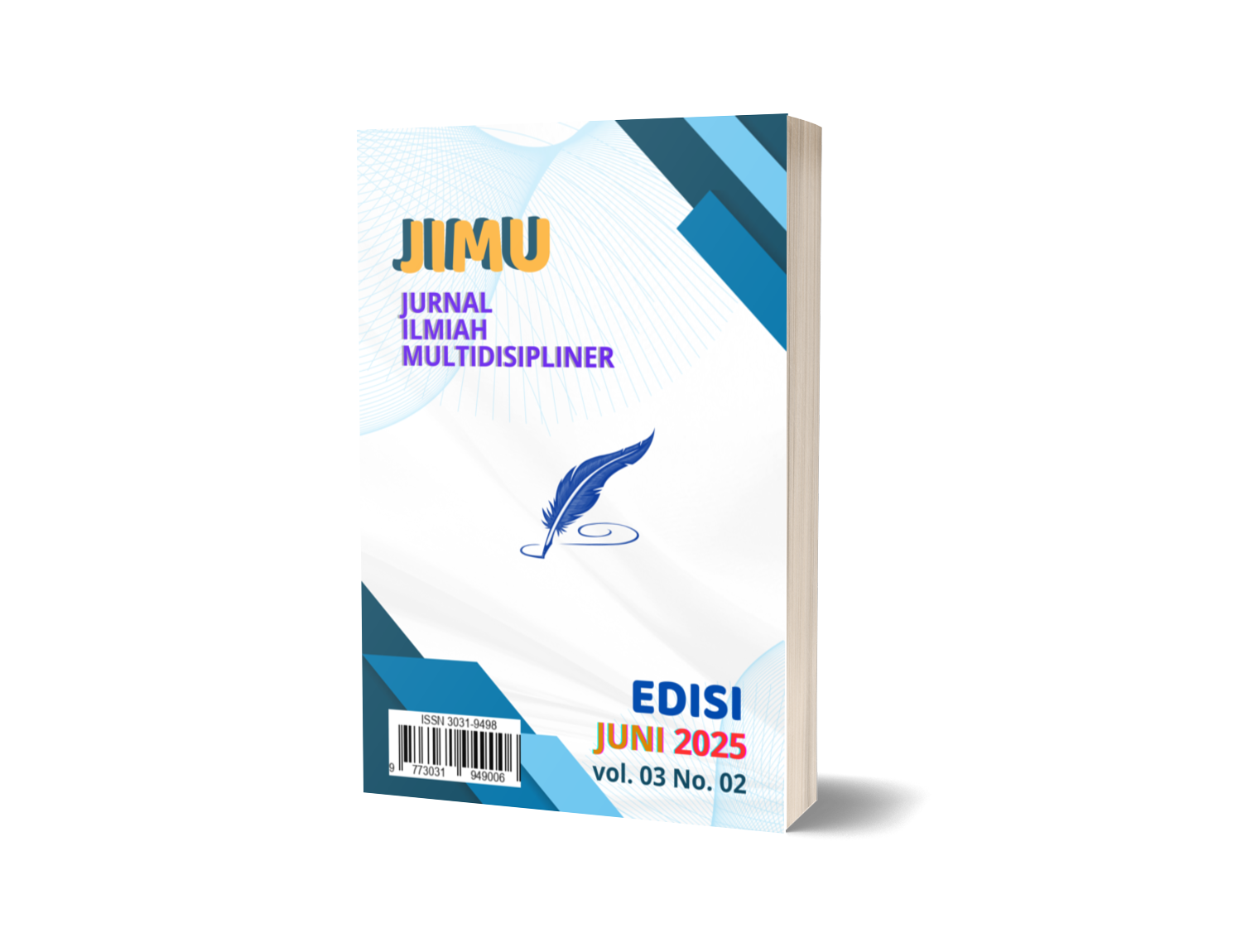Skill Waqf as a Mechanism for Economic Empowerment of Youth: A Comprehensive Literature Review Grounded in Islamic Economic Principles
Kata Kunci:
Skill Waqf, Youth Empowerment, Productive Waqf, Islamic EconomicsAbstrak
This investigation delves into skill waqf as a pioneering variant of productive waqf aimed at economically empowering the youth within the context of Islamic economic paradigms. Employing a Systematic Literature Review (SLR) methodology, a total of 29 scholarly publications disseminated between 2013 and 2024 were scrutinized to evaluate the implementation, advantages, and obstacles associated with skill waqf across diverse socio-economic environments. The results indicate that skill waqf—characterized as the endowment of knowledge, technical competencies, and professional acumen—significantly contributes to the enhancement of employability, entrepreneurship, and human capital development among Muslim youth. Furthermore, the practice of skill waqf is congruent with fundamental Islamic values such as maslahah (public benefit), justice, amanah (trust), and a tawhidic socio-economic vision. Nonetheless, the practical execution of skill waqf continues to encounter regulatory, institutional, and technological impediments. This manuscript advocates for the fortification of institutional partnerships, digital infrastructures, and legal frameworks to mainstream skill waqf as a scalable paradigm for inclusive and ethical youth empowerment within Muslim societies.
Unduhan
Referensi
Abdu, M., Lamido, A.A. and Jibir, A. (2023), "Assessing the awareness and perception of waqf among business owners in Gombe State, Nigeria", Islamic Economic Studies, Vol. 31 No. 1/2, pp. 130-151. https://doi.org/10.1108/IES-02-2023-0006
Abubakar Gwadabe, N., & Abdul Rahman, A. (2022). Waqf as an instrument to attain youth empowerment for sound business environment and peaceful coexistence in kano, nigeria. The Malaysian Journal of Qualitative Research, 8(Issue 1), 83. https://doi.org/10.61211/mjqr080108
Amin, H., Panggi, F., Shaikh, I.M. and Abduh, M. (2024), "Waqif preference of waqf-based qardhul hassan financing in Malaysia using a maqāṣid approach", Journal of Islamic Accounting and Business Research, Vol. ahead-of-print No. ahead-of-print. https://doi.org/10.1108/JIABR-02-2023-0054
Dahiru Idriss, I., Gwadabe, N. A., & Ab Rahman, A. (2023). The potentials of waqf to attain youth empowerment for low level of corruption and peaceful coexistence in kano, nigeria. ‘Abqari Journal, 1–13. https://doi.org/10.33102/abqari.vol29no1.501
Dwi Putri Nirmala, R., Adzantyassurya Qotrunnada, A. S., Mahmada, E., Nida Tahaanii, A., & Andhita Putri, K. (2024). Legal status of profession waqf from a positive legal perspective in indonesia. Journal of Law, Politic and Humanities, 4(4), 1085–1091. https://doi.org/10.38035/jlph.v4i4.442
Elmahgop, F., Alsulami, F., Mohammed, M. G. A., Abdel-Gadir, S., & Elhassan, T. (2025). The socio-economic impacts of waqf investment funds as a model for sustainable financing in saudi arabia. Sustainability, 17(9), 3805. https://doi.org/10.3390/su17093805
Hidayah,S.N.M.(2023). Empowerment of Waqf as Socio-Economic Development of Society (Analysis of Waqf as Social Responsibility in Islamic Organizations). ADZKIYA : Jurnal Hukum dan Ekonomi Syariah. Volume 11, Nomor 1, Tahun 2023, E-ISSN: 2528-0872. DOI: 10.32332/adzkiya.v11i1.4325
Islamiah,M.H.& Munandar,M.A.(2022). The Urgency of Assessing Zakat and Waqf Management Graduatesfor AchieveIndustry Needs. ZISWAF : Jurnal Zakat dan Wakaf. Volume 9Number 1 Year 2022. https://journal.iainkudus.ac.id/index.php/Ziswaf/article/view/30990/pdf
Kamarudin,A.F.,Pawit,M.A.,Idris,U.A.F.M.,Hatta,M.F.M.,& Ismail,Z.(2025). Youth waqf in islamic finance. (2025). Journal of International Business, Economics and Entrepreneurship. https://doi.org/10.24191//jibe.v10i1.3563
Kato, T. (2022). Islamic and capitalist economies: Comparison using econophysics models of wealth exchange and redistribution. https://doi.org/10.48550/ARXIV.2206.05443
Lambon-Quayefio, M., Yeboah, T., Owoo, N. S., Petreski, M., Koranchie, C., Asiedu, E., Zakaria, M., Berko, E., & Agyemang, Y. N. (2023). Empirical review of youth-employment programs in ghana. arXiv. https://doi.org/10.48550/ARXIV.2311.06048
Maulina, R., Dhewanto, W., Faturohman, T. and Nur Azis, I. (2025), "Empowering waqf (Islamic endowment) entrepreneurs: a study of the key motivational factors underlying waqf-based entrepreneurship in Indonesia", European Business Review, Vol. 37 No. 2, pp. 338-370. https://doi.org/10.1108/EBR-11-2023-0342
Muhammad, A. D., Maidoki, M. L., & Sani, U. B. (2018). The role of islamic social finance in empowering youth and women in sokoto state of nigeria. Journal of Islamic Monetary Economics and Finance, 3, 183–200. https://doi.org/10.21098/jimf.v3i0.911
Mujahidah, A. S., & Rusydiana, A. S. (2023). Perceptions of Indonesian Muslim Youth on Factors Influencing Their Intention to Perform Cash Waqf. International Journal of Islamic Economics and Finance (IJIEF), 6(1), 53–72. https://doi.org/10.18196/ijief.v6i1.13964
Nura Abubakar Gwadabe & Asmak Ab Rahman. (2020). The role of Islamic finance in mitigating the economic impact of COVID-19 towards the attainment of maqasid al shariah: A case study of waqf institutions in Kano State, Nigeria. The Journal of Muamalat and Islamic Finance Research, 59–70. https://doi.org/10.33102/jmifr.v17i3.284
Rizal,A.,Fauziyah,N.E.,& Ma’ruf,A.(2020). Integrating Zakah And Waqf For Developing Islamic Economic Boarding School (Iebs) Project In Indonesia. Journal of Islamic Economics and Philanthropy (JIEP). E-ISSN : 2655-335X,VOL. 03, No. 02, Mei 2020.
Rusli,M.& Sukmana,R.(2024). Waqf Literature: Systematic Literature Review. M. Rusli, & Sukmana, R. (2024). Waqf literature: Systematic literature review. International Journal of Advanced Engineering and Management Research, 09(02), 137–151. https://doi.org/10.51505/ijaemr.2024.9209
Sabzian, H., Aliahmadi, A., Azar, A., & Mirzaee, M. (2018). Economic inequality and Islamic Charity: An exploratory agent-based modeling approach. arXiv. https://doi.org/10.48550/ARXIV.1804.09284
Widiastuti, T., Mawardi, I., Samer Ali, A.-S., Atiya, N., Rani, L.N., Robani, A.B. and Al Mustofa, M.U. (2025), "Determinant factors for online cash waqf intention among Muslim millennial generation", Journal of Islamic Marketing, Vol. 16 No. 1, pp. 258-289. https://doi.org/10.1108/JIMA-12-2023-0408
Yasmeen, K. (2024), "Framework for Islamic social entrepreneurship", Journal of Islamic Accounting and Business Research, Vol. ahead-of-print No. ahead-of-print. https://doi.org/10.1108/JIABR-08-2023-0256









